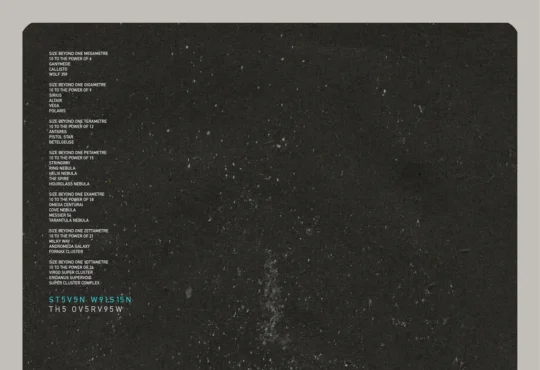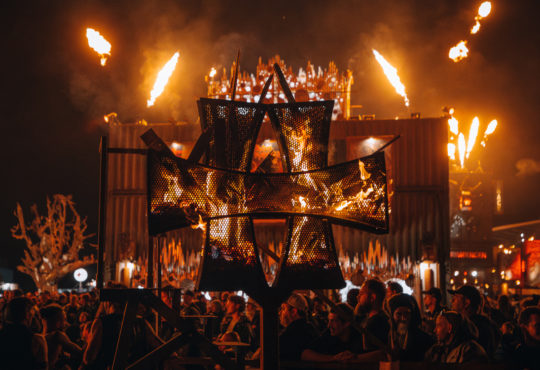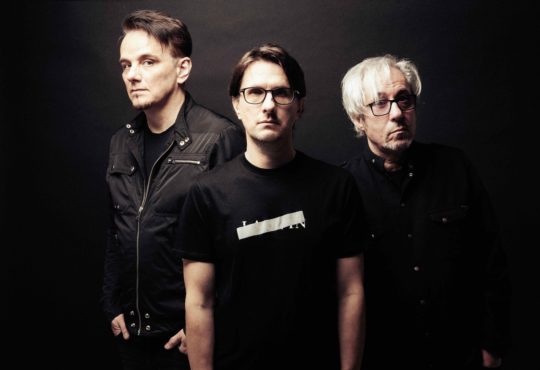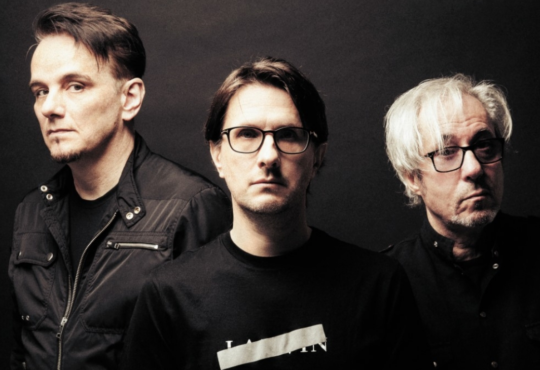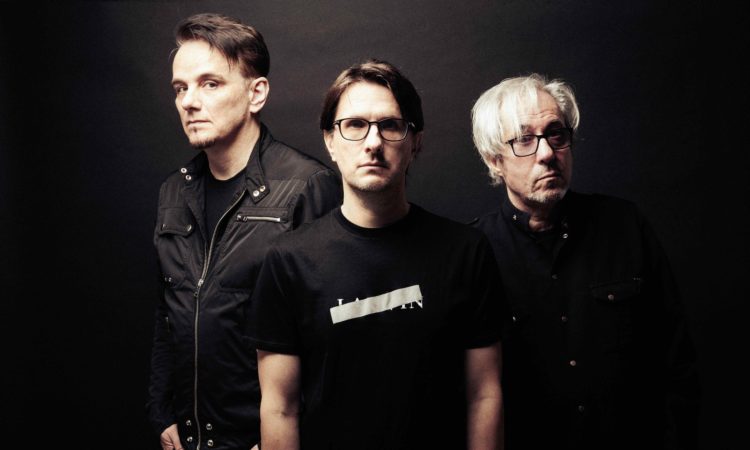
2022 is the year of Porcupine Tree‘s big comeback on stage and on the turntables. Now a trio, the English band will release in a few weeks their eleventh album, Closure/Continuation, thirteen years after The Incident (2009). RockUrLife met Steven Wilson and Richard Barbieri for a long interview dedicated to the album but also to their careers and the evolution of the music industry.
Hearing new Porcupine Tree songs thirteen years after the last ones is really a great feeling. Congratulations on the new album! How do you feel about it?
Steven Wilson (vocals/guitar): Usually when you get to this stage, you are fed up with the record. You have a fairly ambivalent kind of relationship to the record. But I’m still really excited by it. We rehearsed the new material with the new live band members a couple weeks ago, and we had a great time playing the new music. There is a freshness to it.
Richard Barbieri (keyboards): Yes, it sounds quite simple but it is not. Just playing it, there is something different. It is hard to explain exactly what. It was done over a long period of time without any pressure, from record label or any schedule. It is the three of us only. The music is mostly co-written. Steven is playing bass, this is a massive change throughout. And there are no extra musician or orchestrations. We also changed the people around us: we have a different label, a different album designer, so it all feels new.
What triggered the decision to release a Porcupine Tree album in 2022?
Steven: We have been working on it for almost ten years. The honest truth is if it hadn’t been for the lockdown, we probably would not be sitting here now. We would be still working on it. (laughs) Because we were in no rush, nobody knew that we were doing it, nobody was involved, nobody was pressuring us. We had no deadlines. We just did it. Because we had tours cancelled, we finally had this window of opportunity to finish it, and we just threw together all the materials we developped over this very long period of time and realized we had a great album which didn’t simply feel like more of the same. It felt like the sound of the band had evolved but it was still retaining all of the elements that people would considered to be quintessencially Porcupine Tree-esque. That is why I love the sound so much, because it sounds exactly like Porcupine Tree, but it sounds very new and very fresh. I don’t quite know how we did that, but we did! There are certain things that you can point to, that we collaborated a lot on the writing, the fact that I play the bass, but I think it comes down to the fact that we had different experiences, we are older, the world is a very different place than the one that we left back in 2010, and that is all reflecting in the sound of this record.
As a listener, this album may be the most dynamic and cohesive record you’ve ever made.
Richard: There is a dynamism about the album, even though there is less instrumentation. There are not the multi-layered guitars.
Steven: Maybe that is why. There is more space. When it is spacious, it is really spacious. And when it is heavy, it is for a brief moment and then it goes really spacious again.
The production, the vocals, the heaviest moments as well as the most “soft rock” and even ambient parts flow really well together throughout the album, and there are no filler track on it. Is there a song from CC you are particularly proud of?
Steven: I am proud of all of it, but for me there is something about Harridan that captures everything that is special about Porcupine Tree in a eight minutes song. The groove, the sound design, the big metal riffs, the long instrumental passages, the balance, the coda. It has got everything people might think of when they think of Porcupine Tree. If I was gonna play one song to somebody that didn’t know who we were, I would pick that one.
Richard: We used to pick “Blackest Eyes”, from In Absentia, which we felt sumed up what the group was about, but now this is the prime example.
Steven: Which is why it is the first song on the album.
What was everyone’s role in the making of this album? The writing, recording, arrangements, how did it all work?
Steven: It is kind of hard to separate. We were all involved in all aspects. There are three people that made the record, and only three. Those people represent the three points of the triangle that is the creative core of the band. You have Gavin (Harrison, drummer)‘s interest in complex rythms and polyrythm, Richard‘s in sound design and textures, and all of it expresses through my songwriting and songwriting sensibility. Those three things have always been, in a way, the core of the band. So largely, it was written in collaboration, though you could probably tell which songs were written by whom just by the nature of the songs: the ones that are the most interested in complex rhythms would probably be Gavin‘s, the ones more interested in textures and sound work would be the ones written by Richard. And that seems to create a really nice balance on the record. But it is hard to analyze.
Richard: The mix is kind of established as you go along with the process. Once you find two or three elements that work together in a certain way, and then you find the next element and its position and level, that influences the next overdub. So you never start from scratch.
Steven: We wrote the music, we recorded and we played it therefore the three of us produced the album.
Richard: We didn’t introduce any other personalities into it or any other sounds into it, like the orchestrations we had on previous albums.
Steven: It is a beautifully recorded album. I think that is because we are very experienced now, making music together. I remember towards the end of the process taking a lot of the guitar overdubs off, so there was only one guitar playing. We would never have done things like that twelve of thirteen years ago. I think that is something I learned over the last ten years or so. Sometimes a single performance has more personality. It maybe doesn’t sound as impressive, but it sounds more organic. That is something that goes right through the album actually. Everything sounds like it has its place.
Are there any particular themes that run through the album?
Steven: There are, but if you are asking if there is a theme that unites all the songs, not really for the simple reason that it was written over such a long period of time. Traditionally, in the earlier albums, I would write the lyrics over a six months period about whatever I was obsessed with at that moment: serial killers, kids being addicted to social medias. But on the new album, there are only different subjects in the course of what has happened in the world. In the UK we got Brexit, Trump, COVID, and I got married and I have children now. So my life has completely changed several times over, and the world has changed. Having said that, I come back to the same things in all my lyrics. Regrets, the pathos of a life not somehow fulfilled the way that you wanted it to be. I think those things have always been the most compelling and beautiful subjects to write songs about. “Dignity” for example is about a homeless guy that keeps getting passed on the street and yet he used to be somebody really important, a pop star, movie star, big successful businessman and the pathos involved in that kind of fall from grace, to go from so high to so low, and to still have that sense of dignity about you. That story came from just hearing Richard‘s music.
Speaking of inspiration, what inspired you specifically for this record?
Steven: The answer to that question is our sound inspired us. I think our biggest influence on this record was each other, us, and the template we created over the last thirty years or so.
Richard: It was just finding what worked between us. I wasn’t listening to other stuff or trying to bring any other influences. We were keeping it very open between us. It seemed natural and easy.
Steven: When you get to a certain point in your career, I think that your biggest influence becomes your back catalog, in the sense of not wanting to repeat yourself. It is kind of a negative thing in a way: you listen to your own catalog and you say: “I don’t want to do that again“. But at the same time you can’t hide your musical personality, it comes through whether you want it to or not. So you try and go out of your way to do something different every time. But it wasn’t even a conscious thing. I don’t remember being influenced by anything. It was just creating music and being inspired by what other people would share.
Being artists for so long, what is your relationship to creativity today and how has it evolved over the years?
Steven: It is a hard question to answer. For me, it is always what can I do that is different, that is going to excite me, and what can I do that is going to give a new album a reason to exist, because what is the point of just doing more of the same? I say that, because fans sometimes do want more of what they already know. So as an artist it is almost your responsability to confront that, the expectations they have. They say: “Just give us more of what we already like“, and it is almost your obligation to say: “I know you want more of the same, but you are not going to get it, you are going to get something a bit different but you will recognize enough of what you like or hope so that you will learn to love it anyway“. I don’t know if this is what we will achieve with this record but certainly that seems to be what people are telling us.
You’ve talked recently about this album, saying that it could be either a closure or a continuation for the band. Has it been liberating to approach things this way?
Richard: Yeah definitely, because we are not obligated now. We can just make a decision when we want to make a decision, or not. It helped us make the album, so we certainly would not put ourselves under that pressure now by saying, are there going to be another album or another tour. We are looking at this as possibly the last time we will do this, and we are really happy, because we are so happy with the material. It is always important to be able to say that the last thing you have done is what you are really proud of.
Steven: Yes, it is depressing if you have to say: “Here is something I did thirty years ago, that is the best thing I ever did“. As Richard said, I think we genuinely don’t know and there is a kind of implied question mark in the title: is this closure or is this continuation? We don’t know. If it was closure, I think it would be a beautiful way to end with this record. My hunch is that we may, in a few years from now, make another record if we have got something else we want to explore. Whether we will tour again, I am less sure. Personally, I am less enthusiastic about touring now, I have a family, children and everything. So this might be the last tour. But it might not! But if you think about it, that is the way it should be for every band every time. It should always be: “Do we have something to say? Are we going to enjoy going on tour again?“, but of course, that is not reality. Reality is that you get into a cycle. We are lucky in the sense that we have come out of that and now we are able to make our own decisions, which is amazing.
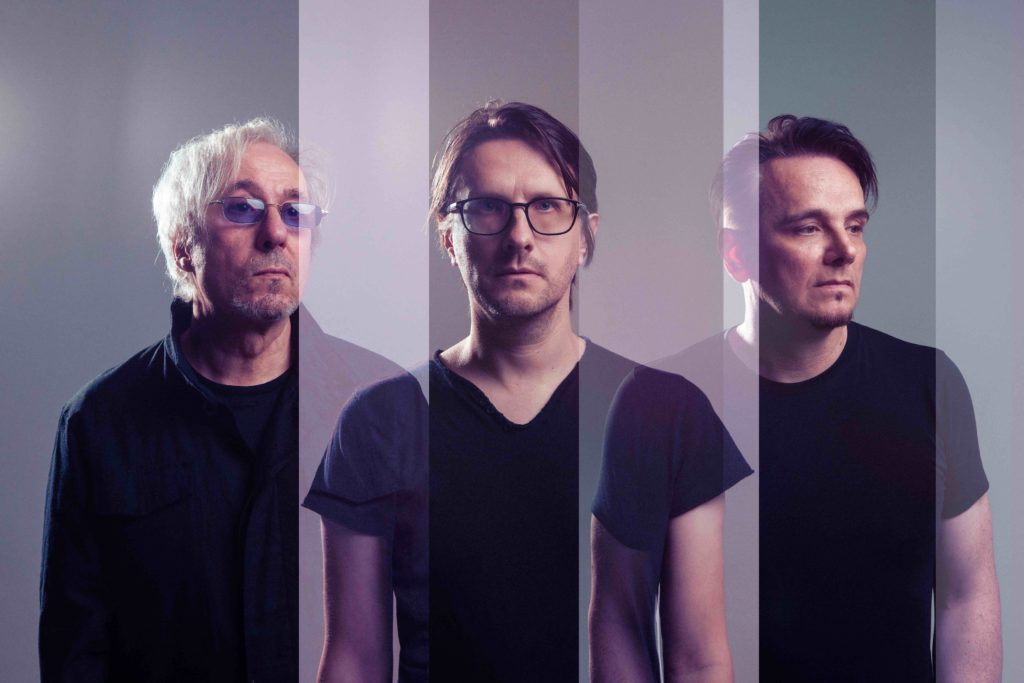
Was it a goal earlier in your career to get to that stage?
Steven: I think I always felt like I was doing what I wanted.
Richard: You just learn along the way the mechanics of how everything works, and then you end up realizing this is the best way to make music. Even now, we are with Sony, a major label, but we are still within a contract that allows us not to make any more music if we want, and they will support us if we don’t.
Steven: But also the music industry has changed. Between the time we were playing shows in 2010 and now, the whole music industry has changed into something completely different.
Richard: There are just three companies that control everything…
Steven: … And Spotify is completely dominant.
Richard: Listens are more important than the record.
How do you see this evolution?
Steven: It is evolution, and I think it is important that the music industry does continue to evolve, even if we don’t personally like what it has evolved into. But it will always do that. It is an interesting time that should make music more creative, but it doesn’t seem to be yet.
Richard: I never thought I would say this but in decades past the record industry was better because although the contracts and the terms were terrible, companies invested in people. They at least gave artists a platform to be able to make music and put out one album, sometimes two or three. And now it has gone. Now you have got one chance for one song. An audience doesn’t want to invest money into this. They see music as an accessory to their life and something to be there as an entertainment.
Steven: People know a song, and they don’t even know who the artist is and they don’t care. They have no loyalty to an artist. My kids are like that. Well they are 9 and 10, but they will put this song on and when I ask who is it by, they have no idea.
Richard: We will probably never find out but it will be interesting to see the longevity of these artists, whether that goes into six, seven decades.
Steven: I think there are exciting things going on in music, mostly in urban music. From where we stand, I mean traditional rock music, rock music is going through a very tough time. It is hard to engage people interested in rock music. Probably it has only got itself to blame, because it hasn’t really reinvented itself.
Richard: I think finding new art forms is always about mixing things together, two very different genres or sound sources, put out of context. It is not new, but it gives a new feel. I don’t know what new music could be invented, given the tools we have, but there are new ways to combine different art forms.
Most of your records are conceptually and musically layered, dense and long. To what extent do you think that the artist’s intention, in this case, can be preserved in today’s listening habits, with streaming and playlists?
Steven: It is a good question I ask myself all the time and I don’t have an answer. How do you sell the long format to people that are now used to little bits? How do we represent the world of Porcupine Tree in a three minutes song? It is impossible. There is no easy answer, except to say that there are still people out there obviously that do still like to immerse themselves in the long format, and that is our audience.
We are curious about the artwork. What does it represent?
Steven: You need the whole package. The idea is a serie of images and it doesn’t matter what the image is, it could be an industrial landscape, a holiday snap, the image of the tree on the front cover. Every single image has the same wide square and the same text, so there is uniformity to the way the images are, even though they are different. The use of text is all about the message, the logo, the brand. The images become almost unrelevant. I was fascinated by this on my last solo album as well (The Future Bites), the idea of using branding, high-concept design techniques to market a pop record. As soon as I had the title Closure/Continuation, I became very interested in this idea that everything would have that “P/T, C/C” logo, that very iconic thing that you could stamp on everything, whatever it is. It is a very modern way to selling, branding, designing things.

Last question: as we are RockUrLife, what rocks your life?
Steven: What rocks my life is my family, my dog, my record collection.
Richard: My cat and playing golf.
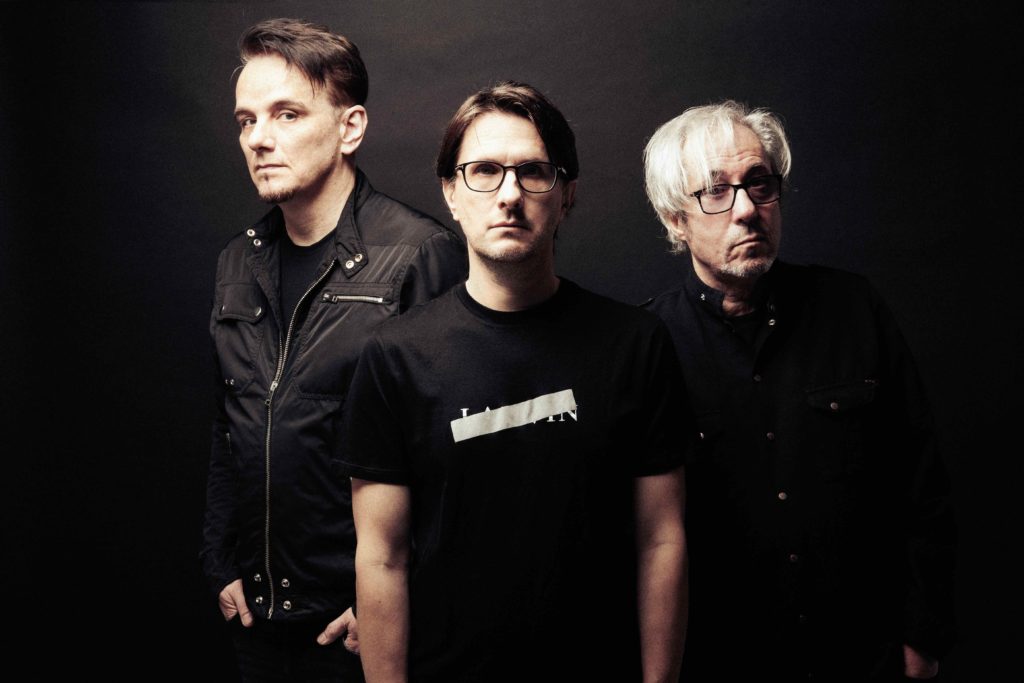
Website: porcupinetree.com



